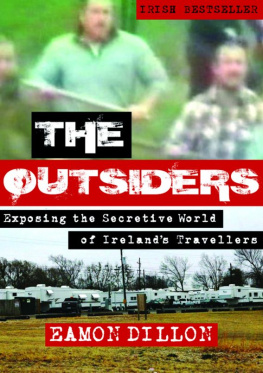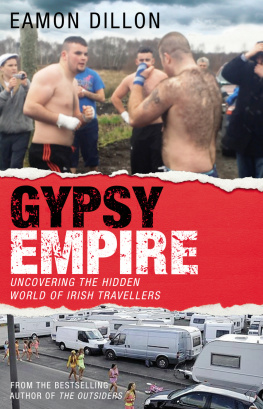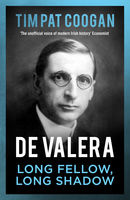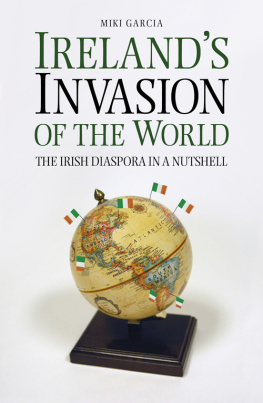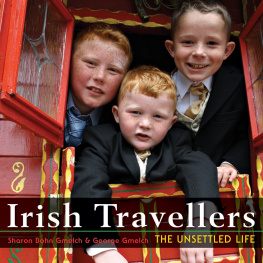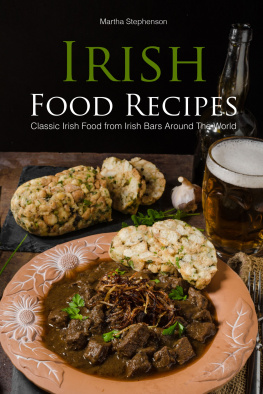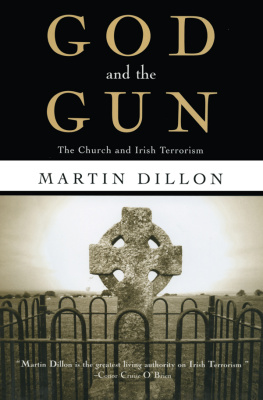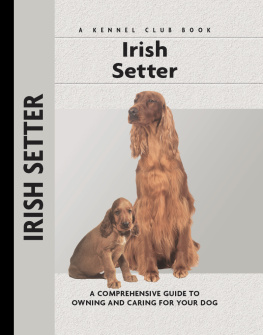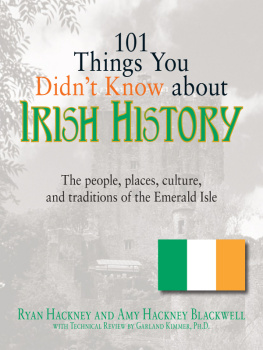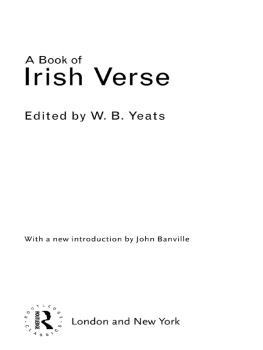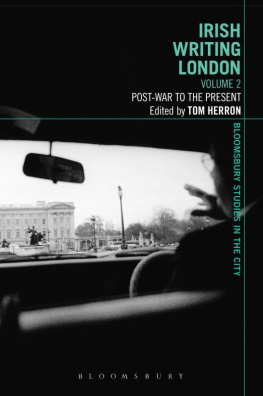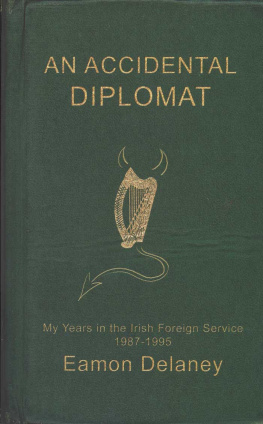TheOutsiders
Exposing theSecretive World of Irelands Travellers
By EamonDillon
Copyright 2013Eamon Dillon
SmashwordsEdition
Thisebook is licensed for your personal enjoyment only. This ebook maynot be re-sold or givenaway to other people. If you would like to share this book withanother person, please purchase an additional copy for eachrecipient. If youre reading this book and did not purchase it, orit was not purchased for your use only, then please return toSmashwords.com and purchase your own copy. Thank you for respectingthe hard work of this author.
Table of Contents
There areabout 50,000 Irish Travellers living in Ireland, the UK, mainlandEurope and North America, The majority are based in Britain andIreland but an estimated 10,000 Travellers live in the UnitedStates. Travellers speak their own language or dialect, known ascant or gammon, and regard themselves as a separate ethnic groupfrom other Irish people. In Ireland Travellers represent just 0.6per cent of the population, making them few and farbetween.
The IrishTraveller community is a disparate group of people with variousdifferent elements and attitudes. As a community, they place greatstore on their nomadic lifestyle and prefer to live together inlarge extended family groups. Travellers will move between otherrelatives mobile homes or tow a caravan to a new camping site.Many Travellers own houses and permanent homes. Many others dont.Within the Travelling community there are families whose way oflife differs greatly from other Traveller groups. Some are verywealthy and some are very poor. They are not a single homogenousgroup. There is no such thing as a typical Traveller.
Despitethe small numbers of Travellers in Ireland, they regularly featurein the media and in conversation among the wider community.Conflict with non-Traveller society is frequent, possibly becauseTravellers are largely inaccessible to members of the widercommunity. The lack of communication between Travellers andnon-Travellers breeds fear, prejudice, envy and ignorance. For mostnon-Travellers their first-hand experience of Travellers is limitedto unauthorised campsites and the associated nuisance behaviour,littering and dumping. These experiences create a wall of prejudicebefore a non-Traveller has even met a Travelling person andguarantees the encounter will be short and uninformative. There arefew people who can say theyve spent time enjoying the hospitalityof a Traveller family in their home or struck up a long-lastingfriendship with a Traveller.
Travellersoften suffer from the ingrained prejudice that exists against themwithin the wider community. In Ireland the pub is a regularflash-point in which the tensions surface between Travellers andnon-Travellers. Pubs are places where people can enjoy a drink andeasily mingle and are a central feature in Irish society.Travellers, however, are not welcome in many pubs and when they areturned away, they claim they are victims of discrimination.Publicans, in their defence, say that Traveller groups regularlymisbehave and cause them serious problems. There has been a litanyof court cases that support both arguments. The truth liessomewhere in between. There are many pub owners, however, who serveTravellers on a regular basis and have continued to do so even whenother Travellers have arrived in their premises and causedproblems.
There isalso the refusal by many non-Travellers to accept that there issuch a thing as Traveller culture. Travellers who drive expensivecars, commercial vehicles and equipment have carried out some ofthe most outrageous Traveller-trader invasions of green spaces.These are events that undermine the argument that such convoys area manifestation of Traveller culture. They also undermine theclaims that Traveller culture is being stymied by localauthorities, who fail to provide appropriate services. Anyone canclearly see that these groups are operating a commercial collectivethat will take advantage of any free resources available, to boosttheir profits. There is no effort made by the Traveller-traders tobuild ties with the local community either. They operate in such away that the only conclusion to be drawn is that the traders aredoing their utmost to avoid paying tax or being tracked down bydisgruntled customers and suppliers. Non-Travellers, who find theirlives or businesses severely inconvenienced by these convoys, dontwant to hear about Traveller culture being suppressed. TheTraveller-traders, however, will still try to use the argument thatwider society is failing to respect their culture by objecting whenthey set up a camp. It is very hard for a non-Traveller to see pastall the illegal activity they then get up to, and view it as partof Traveller culture.
ThoseTravellers who do speak publicly on issues that affect theircommunity belong to campaigning and educational organisations, suchas Pavee Point and the Irish Traveller Movement. Theseorganisations were originally set up as a response to the extremepoverty and lack of educational opportunities faced by manyTraveller families. Travellers face a higher mortality rate thanthe rest of the population in Ireland. Educational standards arefar lower and health problems are greater than in wider society.But the message that emerges from official Traveller organisationsdoes not always give the full picture. Travellers do not have amonopoly on poverty and they are also not unique in experiencingthe failure of the State to deal with these issues. In the samevein, because Travellers suffer prejudice it doesnt mean that theythemselves are not prejudiced against non-Travellers, as anyone whohas been dismissed by Travellers as a buffer will tell you.
VocalTraveller activists, however, quite rightly campaign for betterservices and conditions for members of their community. Theprejudice to which travelling people are exposed is regularlyhighlighted, but there has been far less said about the oppressionthat exists within the community. Many Travellers have sufferedbrutal assaults and attacks on their property and homes, at thehands of other Travellers. There is widespread crime and seriouscriminality among Travellers. Some clans are responsible forcarrying out horrific acts of violence against each other, in thename of family pride. In the last ten years the rate of homicideamong Travellers is on a par with that in Northern Ireland duringThe Troubles but even when they are the target of violence,Travellers are reluctant to turn to the outside authorities forhelp. This makes it very difficult for the police to successfullyprosecute those responsible for Traveller-on-Travellerviolence.
The appallingconditions that afflict the lives of some Travellers are also aproblem. A large convoy of Travellers can sometimes be made up ofdisparate elements, including poorer relations who are left withlittle choice but to follow their better resourced relatives orface the possibility of being left out of the family fold. Theirlives are in complete contrast to the extravagant wealth of some ofthe Traveller-traders, who have spent large sums of cash on buyingor building ornately decorated properties.
In many waysthe Traveller community is a community in crisis and no-one seemsto care. One of the problems is that there rarely seems to be anymeaningful criticism of such actions as illegal campsites, by otherTravellers, who are equally inconvenienced. It adds to the mistrustbetween the communities. When a large group of Traveller-tradersfrom Rathkeale moved into Ballyhaunis, County Mayo in 2004 therewas a lot of publicity about the clash with the local residents.What wasnt mentioned in any media coverage was that the CountyMayo village has a population of Travellers, livingsemi-permanently in the region. They were equally upset by thearrival of the Limerick clans. There is a litany of similarexamples, where such camps have cost huge sums of money to repaironce the traders have moved on, leaving the rubbish and waste oftheir activities behind but nothing is said by the Travellers whoselives are also affected.
Next page
